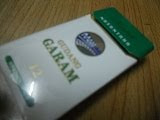~Chemistry :- The relative capacity of an atom, molecule, or radical to combine chemically with
another atom, molecule, or radical.
~Physics :- it means a measure of the deviation from the condition at which reactor is critical.
Reactivity is a measure of the departure of a reactor from criticality. The reactivity is related to the value of keff. Reactivity also is a useful to predict how the neutron population will change over time.
When keff remains constant from generation to generation, it is possible to determine the number of neutrons beginning any particular generation by knowing only the value of keff and the number of neutrons staring the first generation, No.
Number of neutron :- Nn = No ( keff )
 |
| Reactivity is the fractional change in neutron population per generation |
- A little description about the reactivity of Uranium.
Uranium is a heavy silvery-white metallic element, radioactive and toxic, easily oxidized. The uranium isotope with mass number 235 and half-life 7.04 × 108 years, fissionable with slow neutrons and capable in a critical mass of sustaining a chain reaction that can proceed explosively with appropriate mechanical arrangements.
 |
| Nuclear fission chain reaction |
A nuclear chain reaction occurs when one nuclear reaction causes an average of one or more nuclear reactions, thus leading to a self-propagating number of these reactions. The specific nuclear reaction may be the fission of heavy isotopes (e.g. 235U) or the fusion of light isotopes (e.g. 2H and 3H). The nuclear chain reaction is unique since it releases several million times more energy per reaction than any chemical reaction.
Units of Reactivity
Reactivity is a dimensionless number. It does not have dimensions of time, length, mass, or any combination of these dimensions. It is simply a ratio of two quantities that are dimensionless. As shown in the calculation in the previous example, the value of reactivity is often a small decimal value. In order to make this value easier to express, artificial units are defined.
By definition, the value for reactivity is in units of change of k/k. Alternative units for reactivity are % change of k/k and pcm (percent millirho). The conversions between these units of reactivity are shown below.
Another unit of reactivity is used at some reactors is equivalent to 10-4 change of k per k. This unit of reactivity does not have a unique name.







0 comments:
Post a Comment